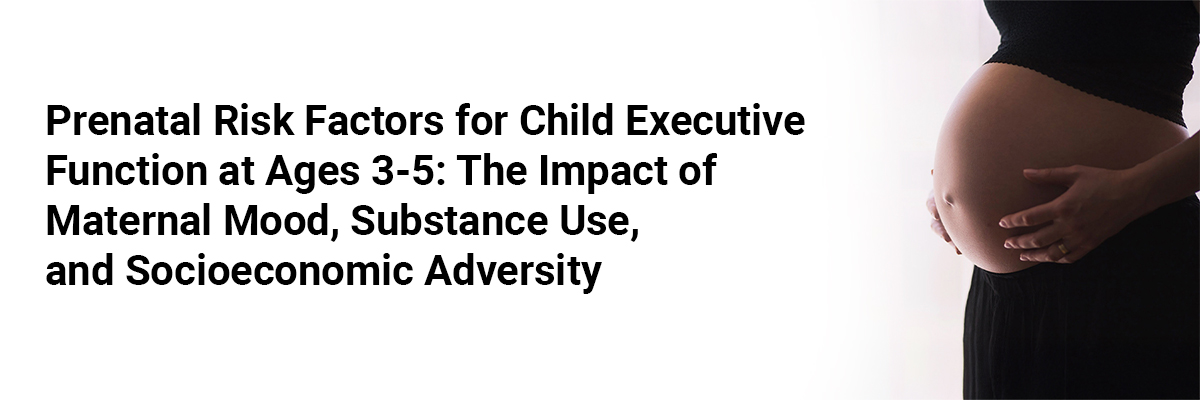
Prenatal Risk Factors for Child Executive Function at Ages 3-5: The Impact of Maternal Mood, Substance Use, and Socioeconomic Adversity
Mounting
evidence establishes the association between prenatal mood and substance use
with the cognitive and behavioral development in children. More research is
required to determine the relative impact of these risk variables on children’s
executive function (EF) in the setting of socioeconomic adversities. In order
to bridge this gap, the researchers of the current study examined how prenatal
maternal anxiety and depression, in the setting of socioeconomic adversities
and prenatal substance use, affect childhood EF, particularly working memory
and inhibitory control. They hypothesized that poorer EF skills in early
childhood would be linked to higher mother mood symptoms, higher levels of
persistent prenatal drinking and smoking, and lower socioeconomic status.
Data
from 334 mother-child dyads were collected during pregnancy and early childhood.
Prenatal maternal depression and anxiety were assessed via questionnaires,
while alcohol and tobacco use were evaluated through interviews. Children's
inhibitory control and working memory were measured using the EF touch battery
at ages 3 to 5 years. Linear regression models analyzed the associations
between prenatal exposures (tobacco, alcohol, anxiety, and depression) and
child executive function, adjusting for gestational age, sex, age at
assessment, and maternal factors.
The
findings revealed the following:
· Children
of mothers with high trait anxiety scores exhibited lower inhibitory control
compared to those whose mothers had no trait anxiety or depression (β = -0.12,
95% CI: -0.22, -0.01).
· Additionally,
children of mothers classified in the moderate to high continuous smoking group
demonstrated reduced inhibitory control (β = -0.19, 95% CI: -0.38, -0.01)
compared to children of non-smoking mothers.
· Moreover,
lower maternal education and higher household crowding were both linked to
diminished inhibitory control.
· However,
no significant associations were found between prenatal maternal depression,
anxiety, or socioeconomic factors and working memory.
Thus,
these findings highlight the importance of developing comprehensive,
context-specific intervention programs that include mental health support for
women to foster healthy inhibitory control development in children.
Source:
Rayport YK, Morales S, Shuffrey LC, Hockett CW, Ziegler K, Rao S, Fifer WP,
Elliott AJ, Sania A. Prenatal risk factors for child executive function at
3-5 years of age: the roles of maternal mood, substance use, and
socioeconomic adversity in a prospective cohort study. BMC Pediatr. 2024 Oct
28;24(1):682. doi: 10.1186/s12887-024-05113-2. PMID: 39465362; PMCID:
PMC11514844.














Please login to comment on this article